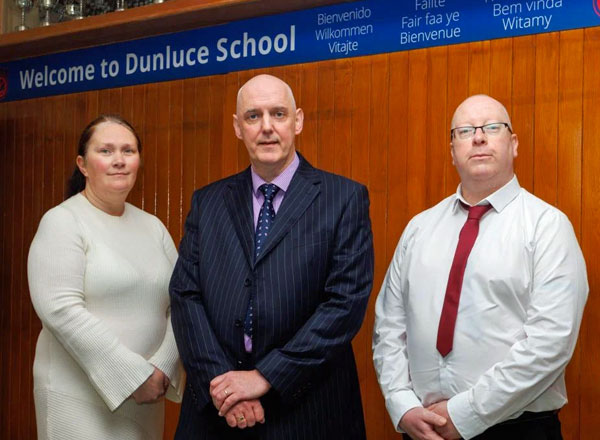





In Arkansas, the state government has made significant investments in mental health and education programs. Governor Sarah Sanders has committed $30 million to improve mental health and substance abuse programs in the state. This funding will help expand access to treatment and support services for individuals struggling with mental health issues and substance abuse [6f30550f].
Additionally, $30 million has been allocated to improve the school for the deaf and the school for the blind and visually impaired. These funds will be used to enhance the facilities and resources available to students with hearing and visual impairments, ensuring they receive a quality education [6f30550f].
State Representative DeAnn Vaught and State Senator Reginald Murdock discussed these developments in Arkansas government. They also addressed the condition of education facilities and initiatives for more funding. Furthermore, they mentioned the appointment of Lana McCaslin and Lindsay Wallace to address controversies in the Department of Corrections [6f30550f].
These investments in mental health and education programs demonstrate the commitment of the Arkansas government to improving the well-being and educational opportunities for its residents. By allocating funds to these areas, the government aims to address critical needs and provide support to vulnerable populations [6f30550f].
In Newcastle upon Tyne, Northumbria University's mental health scheme, Converge Northumbria, has received £388,000 in funding from the National Lottery Community Fund. The scheme offers art and creative education opportunities to adults experiencing mental health challenges. The funding will allow the program to continue for another three years, providing personalized learning opportunities, coaching, life skills, and personal development. Converge Northumbria is part of the university's Higher Education Without Barriers campaign, which aims to support students from all backgrounds. The scheme is an example of the activities that will be part of the university's new Centre for Health and Social Equity (CHASE) [dd73dc1f].
In Northern Ireland and border counties, the PEACEPLUS Programme has allocated €20 million in funding to address mental health challenges among young people. The funding will support two projects: Our Generation, led by Action Mental Health, and Peace of Mind, led by Verbal. These projects aim to provide cross-community and cross-border youth mental health and wellbeing models, peace and reconciliation focused youth leadership programs, and programs to empower young people to act as agents of change. The funding is part of the €1.14 billion PEACEPLUS Programme, managed by the Special EU Programmes Body, and is intended to address the high levels of mental ill-health among young people in the region, which is attributed to the history of violence and conflict. Stormont education minister Paul Givan welcomed the investment and emphasized the need for collective efforts to support the mental health and emotional well-being of children and young people [bcae94ca].
The PSNI and its education partners have hailed the success of the first year of Operation Encompass, a scheme designed to support children affected by domestic abuse. The scheme was rolled out across all 1,162 schools and EOTAS centres in Northern Ireland in May 2023 [817c7bb2].
In Warrington, Esther Ghey, the mother of murdered teenager Brianna Ghey, has raised £100,000 to bring mindfulness lessons to every school in the area. The funds will be used to train teachers in the meditation technique. Brianna, who was transgender, was murdered in a park in Warrington in February 2023. Mindfulness has already been introduced at Brianna's school, Birchwood Community High School. Esther Ghey is calling on the government to introduce mindfulness lessons in all schools, citing the importance of mental health and wellbeing. The government has no plans to introduce mindfulness in every school but has offered grants to train a senior mental health lead by 2025 [120de9d7].
In New South Wales, Australia, the NSW Government has announced a $111.8 million package of initiatives to support community mental health and wellbeing. The package includes $30.4 million to expand Community Mental Health Teams, $40 million for the Pathways to Community Living Initiative, $39 million for a Mental Health Single Front Door, and $2.4 million for the Mental Health Review Tribunal. The initiatives aim to enhance and support the wellbeing of the people of NSW. Over 2 in 5 Australians aged 16 to 85 are estimated to have experienced a mental disorder at some point in their life. The funding will provide a workforce boost of approximately 35 additional mental health positions, strengthen coordination of care, enhance access to specialist psychological services, and improve family involvement in care. The Pathways to Community Living Initiative will focus on supporting alternatives to long-term hospital care for people with complex needs. The Mental Health Single Front Door will allow those in need of mental health support to call Healthdirect and receive assessment advice from specialist clinicians. The funding for the Mental Health Review Tribunal will enable a digitization of records, an upgrade to IT systems, and an investment in a new case management system. The initiatives have been developed in consultation with carers, mental health professionals, service providers, and those who may use the service. Premier Chris Minns stated that mental health services are a vital lifeline for people in the community and this funding is an important step in providing care for the people of NSW. Treasurer Daniel Mookhey emphasized that the community mental health package is necessary to provide more help across NSW. The NSW Government aims to strengthen the mental health system and ensure it is responsive and well-resourced [55b11100].